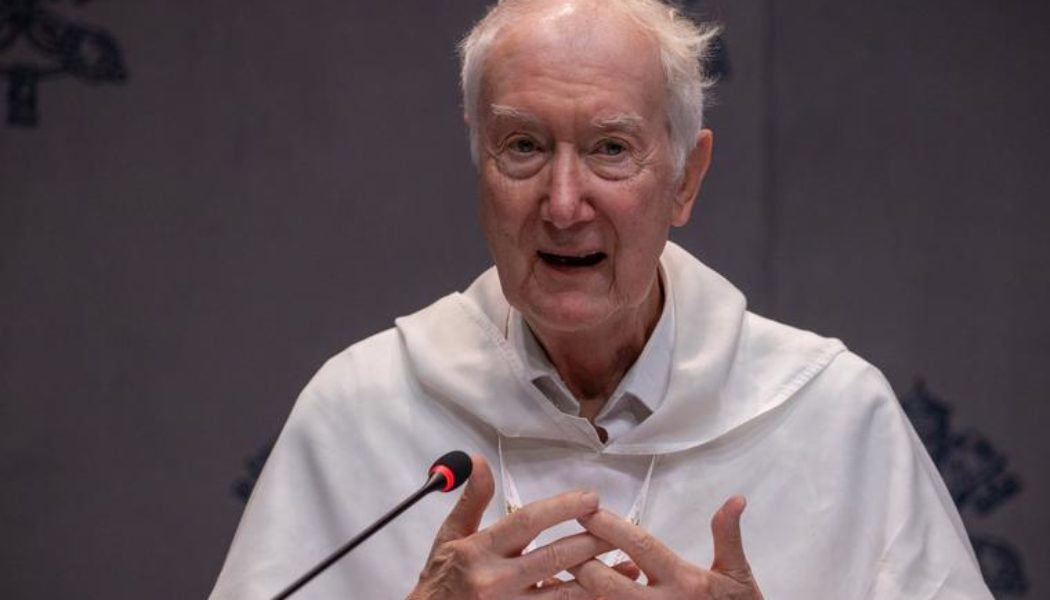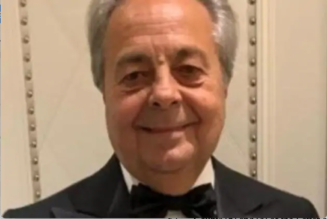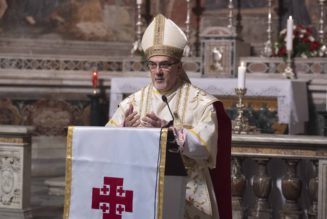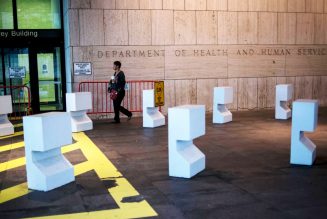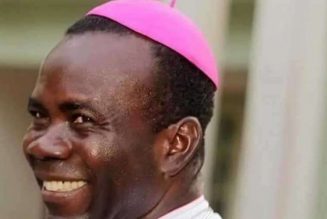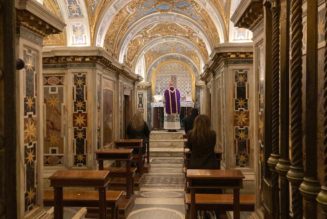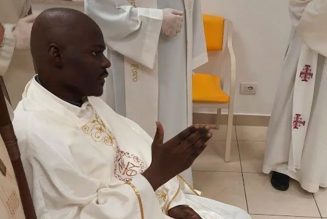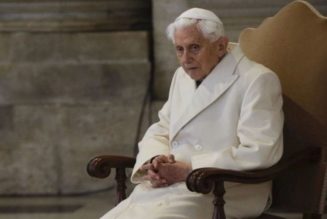
With hot-button issues sidelined and major changes seemingly off the table, progressive Catholics feel led astray by synod organizers’ grand promises.
For progressive Catholics hoping for dramatic changes in the Church, the Synod on Synodality was supposed to usher in a new springtime.
Instead, with the final document set to be approved this Saturday, those who have advocated for things like women deacons and the acceptance of same-sex relations are bracing for a “final cold shower.”
That’s the image used by Vatican journalist Franca Giansoldati to describe the widespread disappointment among progressives that seems to be setting in within and around the synod hall.
Stories of disillusionment within Paul VI Hall have trickled out to the media, including a minority of delegates who support women’s ordination tearfully imploring for change and aggressively challenging those they perceive as resistant. Outside, reform groups have released critical statements about the fact that major shifts appear unlikely to happen.
And some are critiquing synod organizers for setting synodal expectations that have not been met by reality.
“We are told repeatedly that this synod is about a new way of being church,” wrote Zac Davis in America magazine, the U.S. Jesuits’ flagship publication. “I worry that many Catholics will come away from this process disillusioned if the new way leads to the same results.”
The disappointment for more progressive Catholics has been accentuated by Pope Francis’ decision to take “hot-button” topics related to women and sexual teaching off the final session’s agenda and give them to dedicated study groups.
Dissatisfaction morphed into near dissent when Cardinal Víctor Manuel Fernández, head of the Dicastery for the Doctrine of the Faith and leader of the group studying the possibility of ordaining women as deacons, failed to show up at an Oct. 18 meeting with delegates after he had previously told them that there “is still no room for a positive decision” on the question.
But the Vatican’s decision to table the controversial issues only came after organizers initially had given many the impression that every issue would be up for discussion and encouraged input from groups that openly dissent from settled Church teaching.
During the early stages of the 2021-2024 synod, progressive Catholic activists and theologians repeatedly presented the synod as an opportunity to usher in major changes. Synod organizers and communications partners tended not to correct these narratives, while labeling those who raised concerns about this version of synodality as moved by fear.
In one notable instance of setting dramatic expectations, Sister Nathalie Becquart, undersecretary of the Secretariat of the Synod, frequently repeated the claim that the Synod on Synodality “is the most important ecclesial event after the Second Vatican Council.”
That claim about its significance had previously been made in 2021 by the progressive theologian Massimo Faggioli, who has said it is a “hypocrisy” that the Church does not have female deacons, and Sister Nathalie repeated it in articles and presentations throughout 2022.
At other times, synod organizers have spoken of the process as a representative consultation of the People of God, capable of gauging the “sense of the faithful,” despite the fact that in several countries less than 1% of Catholics participated in listening sessions.
Synod organizers have since attempted to tamp down on grandiose expectations, but hopes for dramatic changes from the event have persisted.
As Andrea Gagliarducci noted in the Register’s pages at the start of the synod’s final session, the real challenge facing organizers this month would be “how to manage the expectations of those hoping and pushing for sweeping changes.”
And even as far back as October 2023, Stephen White of The Catholic University of America noted that “a synod communications and marketing strategy that promises novelty and presupposes change” had already set some up to feel like they’d been “sold a bill of goods.”
“Expectations for the synod — expectations both hopeful and fearful — have grown so great that it is increasingly difficult to imagine an outcome for the synod that doesn’t leave large parts of the Church feeling hoodwinked,” White wrote at the time.
Perhaps anticipating the discontent of some with the direction the synod seems to be heading, Cardinal-designate Timothy Radcliffe gave an Oct. 21 reflection to the assembly, calling for all to have “interior freedom” in the face of a possibly unsatisfying outcome.
“We may be disappointed with the decisions of the synod,” the papally appointed spiritual guide of the synod said. “Some of us will consider these to be ill-advised or even wrong.”
Cardinal-designate Radcliffe added that “God’s providence is gently, silently at work,” even when things appear to go off track.
The former master of the Dominican order, who Pope Francis will create a cardinal on Dec. 7, followed this reflection up with comments at a press conference that discouraged those reading the forthcoming final document from looking for big changes.
“I think maybe the temptation of many people, including the press, is to look for startling decisions — headlines,” he said. “But I think that is a mistake. Because I think the synod is about a deep renewal of the Church in a new situation.”
Davis at America, however, questioned this guidance after years of synod organizers attempting to promote the event as a seismic shift.
“At the end of a multi-year process that has asked the entire Church and beyond to contribute time and resources,” he wrote, “is it really too much to ask for a headline or two?”
